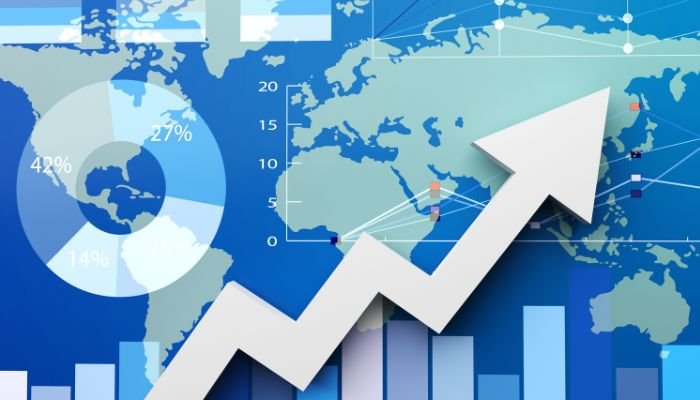The global economy is shifting fast. Over the next ten years, we will see big changes that will affect how countries grow, how businesses operate, and how people live. Understanding these trends can help individuals, companies, and governments prepare for what’s ahead. This article explains the key forces shaping the world economy and what we might expect by 2035.
Rising Power of Emerging Markets
In the past, the economic spotlight focused mainly on countries like the United States, Japan, and Europe. But that is changing. Emerging markets such as India, Brazil, Indonesia, and several African nations are growing quickly. These countries have young populations, expanding middle classes, and improving technology. As a result, they are becoming major players in global trade and investment.
This shift means the center of economic power is moving away from traditional Western countries toward regions that once were seen as developing. These emerging economies are not just growing faster; they are also becoming more innovative and self-reliant. We can expect them to drive global demand and influence international policies much more than before.

The Rise of Digital Currencies and Blockchain
Money is changing. Digital currencies like Bitcoin and Ethereum grabbed headlines a few years ago, but their impact is only beginning. Central banks worldwide are exploring digital versions of their currencies, called Central Bank Digital Currencies (CBDCs). These could make transactions faster, cheaper, and more secure.
Blockchain technology, which supports cryptocurrencies, is also transforming industries beyond finance. It offers transparent and tamper-proof records, useful for supply chains, contracts, and even voting systems. Over the next decade, these technologies could reshape how money moves and how trust is built in business and government.
Growing Focus on Sustainability
Environmental concerns are no longer just about saving trees or reducing pollution. They have become a core part of economic planning. Countries and companies are committing to cut carbon emissions and shift to cleaner energy sources.
Sustainable economies mean investing in green technologies, creating jobs in renewable energy, and changing how goods are produced and consumed. This transformation is necessary to combat climate change and to avoid economic risks linked to environmental damage. Expect more governments to introduce regulations and incentives to support this shift, pushing companies to adapt or risk falling behind.
Technological Transformation: AI, Automation, and Big Data
Technology will keep changing everything—work, trade, health, and education. Artificial intelligence (AI), automation, and big data are becoming central to economic growth. Machines can now perform tasks that once required humans, from driving cars to analyzing complex data.
While this creates efficiency and new opportunities, it also raises concerns. Jobs that rely on routine tasks may disappear, and workers need new skills to keep up. Countries that invest in education and technology infrastructure will benefit the most.
These innovations, along with infrastructure and policy investments, are shaping the key drivers of economic growth in 2025 and beyond. Over the next decade, technology will not just support the economy; it will shape its very structure.
Global Trade and Geopolitical Changes
Trade has been the engine of economic growth for decades. However, recent years have shown the risks of relying too much on global supply chains, especially during crises like the COVID-19 pandemic. Countries are reconsidering where and how they source goods.
At the same time, geopolitical tensions between major powers like the US, China, and the European Union are reshaping trade rules and alliances. Some nations focus on regional partnerships, while others aim for self-sufficiency in critical sectors like technology and energy.
These dynamics will lead to a more complex global trade environment. Businesses will need to adapt to changing rules, tariffs, and political risks to stay competitive.
The Changing Nature of Work and Labor Markets
Work is evolving fast. Remote work, gig jobs, and flexible hours are becoming common. This trend, accelerated by the pandemic, is likely to continue. It offers workers more freedom but also brings challenges like job security and benefits.
Moreover, the labor market faces aging populations in many developed countries. This could slow growth and increase the burden on social systems. On the other hand, younger populations in emerging markets could provide fresh labor and innovation.
In some regions, economic shifts and unstable labor markets can also contribute to housing insecurity and rising homelessness. Understanding the socioeconomic impact of homelessness is vital when assessing long-term labor and social welfare challenges.
The next decade will require new policies that balance flexibility with protection and support workers in adapting to change.
Financial Markets and Debt Levels
Financial markets are more interconnected than ever. Low interest rates have encouraged borrowing by governments, companies, and individuals. But this also means higher debt levels, which could become risky if economic growth slows or interest rates rise.
Investors are watching carefully for signs of inflation or financial bubbles. Managing these risks will be crucial for stable growth. Transparency, regulation, and responsible lending will play a key role in maintaining trust in financial systems.
Conclusion
The global economy is heading into a decade full of changes and challenges. Emerging markets will rise, digital money will become common, sustainability will drive investments, and technology will reshape jobs. Trade and politics will continue to affect how countries interact, while financial markets demand careful management.
Understanding these trends helps everyone—from policymakers to workers—make better decisions. Change can be daunting, but it also brings new chances. By staying informed and flexible, we can all benefit from the economic evolution ahead.
FAQs
Q: Will emerging markets surpass developed countries in economic size?
A: Many emerging markets are growing faster, but developed countries still hold large economic power. Over the next decade, some emerging economies will narrow the gap, especially in Asia and Africa.
Q: How will climate change affect the global economy?
A: Climate change can cause damage to infrastructure, reduce productivity, and increase costs. At the same time, investing in green technologies can create new industries and jobs.
Q: Is digital currency safe to use?
A: Digital currencies backed by central banks are generally safe and regulated. However, some cryptocurrencies can be volatile and riskier.
Q: Will automation cause massive job losses?
A: Automation will change jobs, but it will also create new roles requiring different skills. The key is investing in education and retraining.
Q: How should businesses prepare for geopolitical risks?
A: Diversifying supply chains, monitoring political developments, and being flexible with markets and partners will help businesses manage risks.






